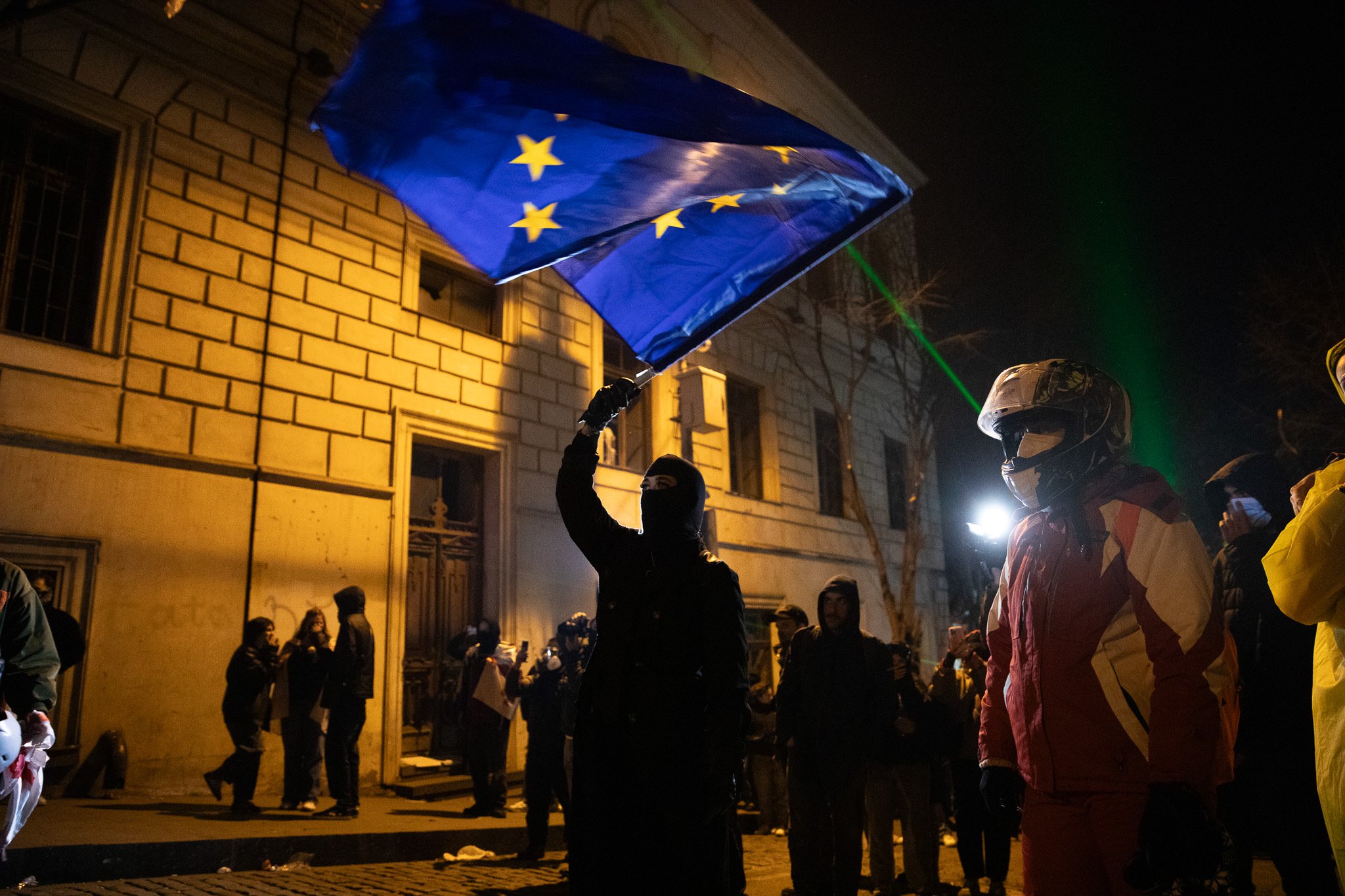In the month following the controversial parliamentary elections, the country of Georgia was on edge, ready to erupt if given the opportunity. Prime Minister Irakli Kobakhidze handed it to the people when he declared, in the last days of November, that the country would pause its process of adhesion to the European Union - for which it holds candidate status since January 2024. Spontaneous popular protests erupted across the country, from the seaside resort town of Batumi to the avenues of the capital, Tbilisi. Over the last ten days, the evening has unfolded in remarkably similar fashion at the heart of the small nation. Demonstrators gather in front of the Parliament on Rustaveli Avenue, clashes between protesters and police begin, and fireworks are used as primary weaponry by the protesters. Then, riot police move in, with its state-of-the-art water-cannons, purchased a few weeks before the elections. Progressively, and despite the protesters’ best efforts, Rustaveli avenue gets hosed down. Participants, once out of ammunition, attempt to escape the indiscriminate arrests of the Police and the Titushkis lurking in the shadows of the side streets - a much-feared group of unmarked police known for their violent beatings. At dawn, the streets are cleared and reopened, protesters and police alike go return to their quarters, sleeping the events off until meeting again the following evening, for the same choreography of discontent and violence.
Riot police attacked by fireworks during the post-election riots in Tbilisi, Georgia.

Riot police firing tear gas at protesters in the post-election riots in Tbilisi, Georgia.

Riot police withstands firework attacks while pushing protesters away from the Georgian Parliament in Tbilisi, Georgia.

A protester stands in front of the riot police, defying the water cannons in a standoff lasting dozens of minutes before her ultimate arrest in Tbilisi, Georgia.

A protester stands in front of the riot police, defying the water cannons in a standoff lasting dozens of minutes before her ultimate arrest in Tbilisi, Georgia.

Riot Police protecting the Georgian Parliament, with protesters aiming lasers at their eyes in Tbilisi, Georgia.

Protesters shooting fireworks at the Georgian Parliement during the ongoing riots against the results of the elections in Tbilisi, Georgia.

Protesters shooting fireworks at the Georgian Parliement during the ongoing riots against the results of the elections in Tbilisi, Georgia.

Riot police, armed with water cannons, push back protesters from the Georgian Parliament in Tbilisi, Georgia.

Riot police advance down Rustaveli Avenue while chasing down protesters in Tbilisi, Georgia.

Riot police shelter from the incoming fireworks with their shields in Tbilisi, Georgia.

Riot police prepares to fire tear gas at protesters whiel pushing them away from the Georgian Parliament in Tbilisi, Georgia.

A protester display an EU flag in front of the Riot police protecting the Georgian Parliamentin Tbilisi, Georgia.

A firework explodes above the parliament in Tbilisi, Georgia.

A protester wearing the EU flag offers a rose to the riot police protecting the parliament in Tbilisi, Georgia.

A coffin containing an effigy of Ivanichvili, the leader of the governing party 'Georgian Dream', before setting it alight in front of the Parliament in Tbilisi, Georgia.